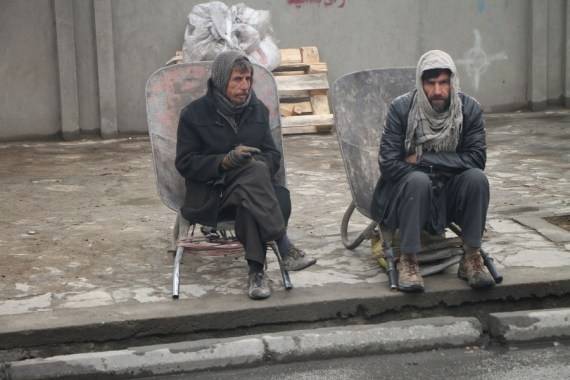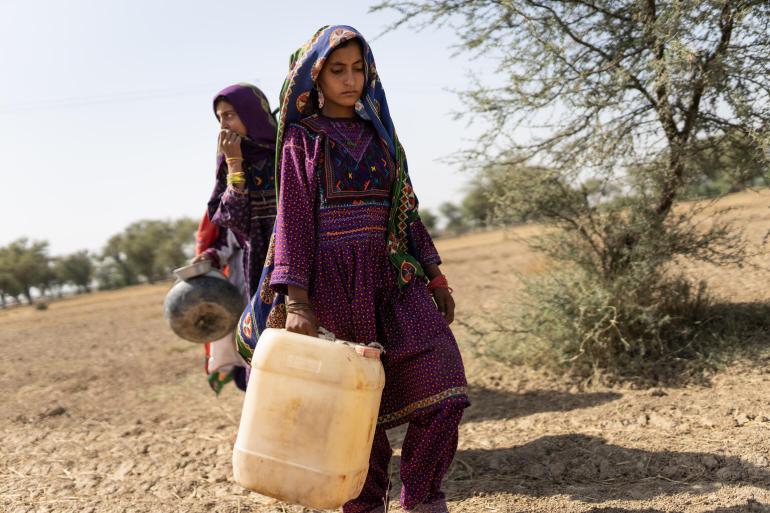This came after the residents of Kabul urged the interim government and aid organizations to distribute their assistance transparently to the people..reports Asian Lite News
Amid the dire need for humanitarian aid in Afghanistan, the International Rescue Committee (IRC) said that almost 30 million people are in serious need of assistance as funding shortfalls jeopardize the humanitarian response after the Taliban took over in Afghanistan, TOLO News reported.
The IRC moreover, warned that the shortfall in humanitarian aid for Afghanistan has contributed to a 60 percent increase in the number of people in need, along with economic collapse, climate change, and reduced access to basic services.
IRC Afghanistan Director Salma Ben Aissa said, “Since August 15, 2021, Afghanistan has continued to suffer from a rapid economic collapse. Ordinary Afghans have paid the price; people who previously had jobs and were self-sufficient are now reliant on humanitarian aid and many families can no longer afford to feed themselves.”
“Two years later the economy remains cut off from international systems and 28.8 million people require humanitarian assistance, while nearly the entire population lives in poverty. Almost 80% of those in need are women and girls,” she added, according to TOLO News.
However, Mir Shikib Mir, an Economist, said that the Taliban’s interference in assistance is one of the reasons behind the cut in humanitarian aid.
“The reason is the lack of recognition of the Taliban regime which has directly affected the aid process to Afghanistan. Another reason is the Taliban’s interference in assistance,” he said.

This came after the residents of Kabul urged the interim government and aid organizations to distribute their assistance transparently to the people, reported TOLO News.
One of the residents, Sayed Naim, said, “In the past, I was making even 500 Afs on a daily basis. I now cannot even earn 200 Afs.”
“The people are so worried. There is a spike in prices,” said Mohammad Ishhaq, another resident of Kabul.
This comes as the Ministry of Economy said that the continuation of assistance in the current situation is important for Afghanistan.
Abdul Latif Nazari, Deputy Minister of Economy said, “The international assistance should be continued to the people of Afghanistan and this assistance should be in the field of infrastructure and development.”
According to the IRC Afghanistan director, this year, “In the face of significant challenges, humanitarian actors have been able to maintain and expand their activities to deliver lifesaving assistance to over 17 million Afghans. Thanks to the tenacity and dedication of Afghan aid workers, whose commitment to the Afghan people has never wavered, organizations like the IRC have been able to deliver emergency support to families in remote communities who were unable to receive support before August 2021 when the conflict was ongoing.”
Furthermore, on Friday, the United Nations humanitarians warned of a severe aid funding gap for aid to more than 21 million people in Afghanistan even though some relief has already been reduced, Khaama Press reported.
Earlier, the UK Parliament had informed that the humanitarian aid given to Afghanistan by the Official Development Assistance (ODA) has been reduced by 59 per cent, as per Tolo News.
The issue of the humanitarian crisis in Afghanistan was also raised in the United Nations Security Council High-level open debate where representatives from various countries urged for the providing aid in Afghanistan, reported Khaama Press.
Notably, Afghanistan, under the Taliban, is facing its worst humanitarian crisis and the women of the country are denied fundamental rights. According to a World Food Programme assessment, Afghanistan is one of the nations with extreme food insecurity, with nine million people affected by severe economic difficulties and hunger.
Since the Taliban seized power in August 2021, the law and order situation in the country has only deteriorated, with the rise in cases of terrorism and blasts.
The group banned women from going to schools. Later in December last year, they banned women from going to universities and working with aid agencies. Earlier this year, the Taliban also imposed a ban on salons, which were a major employment source for women. (ANI)

Leave a Reply